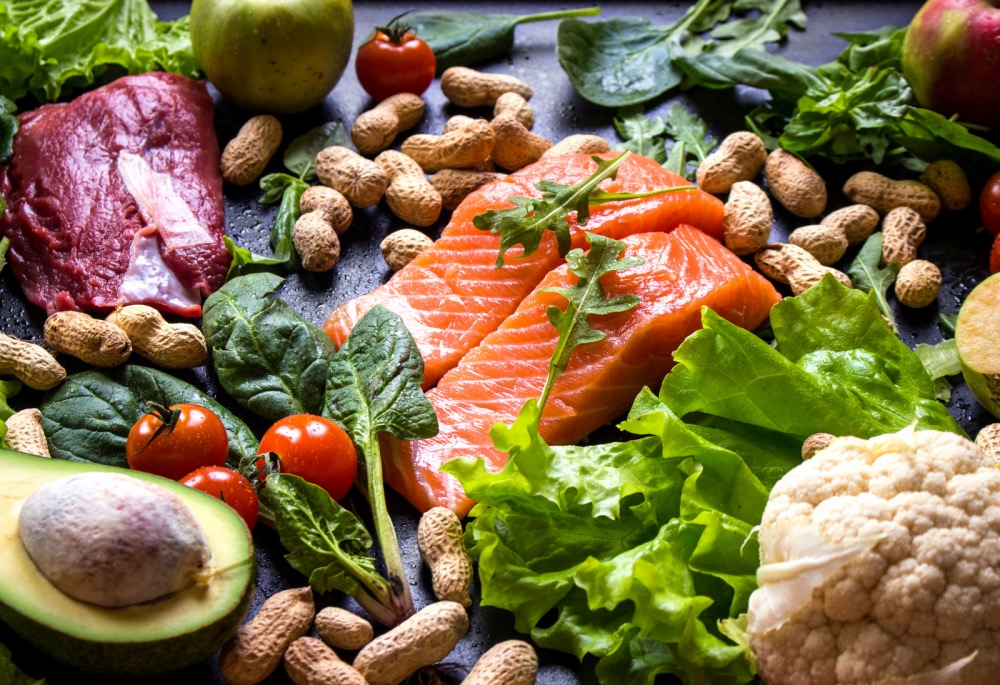For many, the journey to weight loss can feel like an uphill battle, filled with setbacks, frustration, and the sense that no matter what they do, progress is impossible. There are various reasons why weight loss might feel unattainable—from unrealistic expectations to metabolic issues, stress, or emotional eating. However, by understanding the root causes and implementing effective strategies, you can turn the tide. Here are 12 science-backed ways to overcome obstacles and make weight loss achievable.

1. Set Realistic Goals
One of the biggest barriers to weight loss success is setting goals that are too ambitious or unrealistic. Rapid weight loss is not only unsustainable but can also be damaging to your metabolism and mental health. Instead, aim for slow, steady progress—such as losing 1–2 pounds per week—by setting achievable, short-term goals that build confidence and momentum. This approach leads to long-term success, as supported by research from the Journal of the Academy of Nutrition and Dietetics.

2. Avoid Overly Restrictive Diets
Many people adopt restrictive diets in an effort to lose weight quickly, only to find themselves feeling deprived, hungry, and prone to binge eating. Instead of cutting out entire food groups or following extreme diets, focus on balanced nutrition. Enjoy whole, nutrient-dense foods in moderation while allowing yourself occasional treats. Sustainable weight loss is about creating long-term healthy habits, not short-term fixes.

3. Address Emotional Eating
Emotional eating—turning to food for comfort, stress relief, or as a coping mechanism—can make weight loss feel impossible. If you find yourself reaching for food when you’re stressed, sad, or anxious, start identifying emotional triggers and practicing alternative coping strategies, such as mindfulness, journaling, or physical activity. A study from Harvard Medical School highlights the importance of addressing emotional eating to break the cycle and foster healthier habits.

4. Prioritise Sleep
Poor sleep quality and inadequate rest can sabotage your weight loss efforts. Lack of sleep increases cravings for high-calorie foods and disrupts hormones that regulate hunger and satiety, such as ghrelin and leptin. Aim for 7–9 hours of quality sleep each night to support both your metabolic function and your emotional well-being. Research from The National Sleep Foundation shows that adequate sleep plays a critical role in weight management.

5. Manage Stress Levels
Chronic stress triggers the release of cortisol, a hormone that increases appetite and encourages fat storage, particularly around the abdomen. When stress levels remain high, losing weight can feel impossible. Incorporating stress-reduction techniques such as yoga, meditation, and deep breathing can help lower cortisol levels and create a healthier hormonal balance for weight loss. Managing stress is crucial for both physical and mental well-being.

6. Focus on Protein-Rich Foods
Protein is a key macronutrient for weight loss because it promotes satiety, reduces cravings, and helps preserve muscle mass during fat loss. Including lean sources of protein—such as chicken, fish, beans, and tofu—in every meal can help you feel fuller for longer and prevent overeating. According to the American Journal of Clinical Nutrition, a high-protein diet can support fat loss while preserving lean muscle.

7. Track Your Progress, But Don’t Obsess
Keeping track of your food intake, exercise, and progress can help you stay accountable and make adjustments when necessary. However, it’s important not to obsess over every detail or weigh yourself too frequently, as this can lead to frustration or anxiety. Instead, focus on trends over time and celebrate non-scale victories like improved energy, better sleep, or increased strength.

8. Embrace Consistency, Not Perfection
Weight loss often feels impossible when you strive for perfection. Slip-ups happen, but they don’t have to derail your progress. Instead of beating yourself up after an indulgence or missed workout, focus on consistency over time. Progress is made through regular, healthy habits—not through perfection. The key is to get back on track after a setback rather than giving up entirely.

9. Understand Plateaus Are Normal
Hitting a weight loss plateau—where progress slows or stalls—is common and frustrating, but it’s also a normal part of the process. When you lose weight, your body adjusts to the lower caloric intake and may become more efficient at conserving energy. To overcome a plateau, try adjusting your calorie intake, changing up your exercise routine, or incorporating strength training to boost your metabolism.

10. Hydrate Properly
Dehydration can mimic hunger, leading to unnecessary snacking and overeating. Staying hydrated helps regulate metabolism and supports digestion. Drinking water before meals can also help with portion control by making you feel fuller faster. Make it a habit to drink water throughout the day, and consider swapping sugary drinks for water to cut excess calories.

11. Add Strength Training to Your Routine
Cardio exercises like running or cycling are great for burning calories, but strength training is crucial for building muscle, which in turn boosts metabolism. The more muscle you have, the more calories your body burns at rest. Incorporating resistance training 2–3 times a week will help you maintain or increase muscle mass while losing fat, making weight loss more sustainable.

12. Seek Support and Accountability
Having a support system can make a world of difference when it comes to achieving weight loss goals. Whether it’s a workout buddy, a friend, or a support group, sharing your journey with others can help you stay motivated and accountable. According to Psychology Today, individuals who have social support are more likely to achieve their weight loss goals than those who go it alone.
Summary: Why Weight Loss Feels Impossible and How to Fix It
Weight loss can feel impossible for a variety of reasons, from unrealistic expectations and emotional eating to stress and sleep deprivation. However, by adopting sustainable strategies—such as focusing on balanced nutrition, managing stress, prioritizing sleep, and incorporating strength training—you can overcome these barriers. Patience, consistency, and a healthy mindset are key to achieving your weight loss goals. These 12 science-backed solutions offer practical ways to fix the common challenges that make weight loss feel unattainable.







